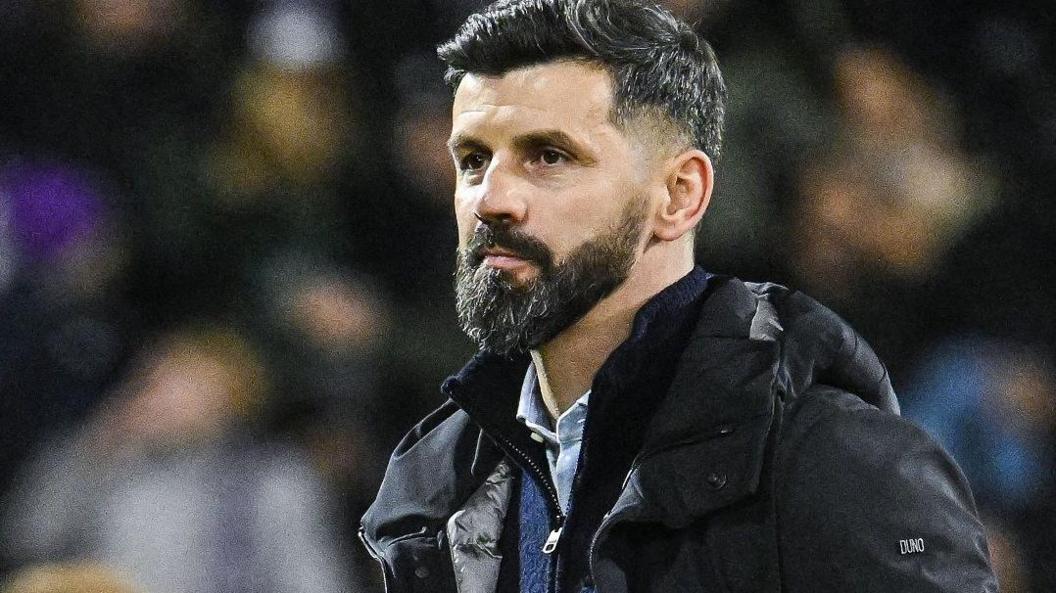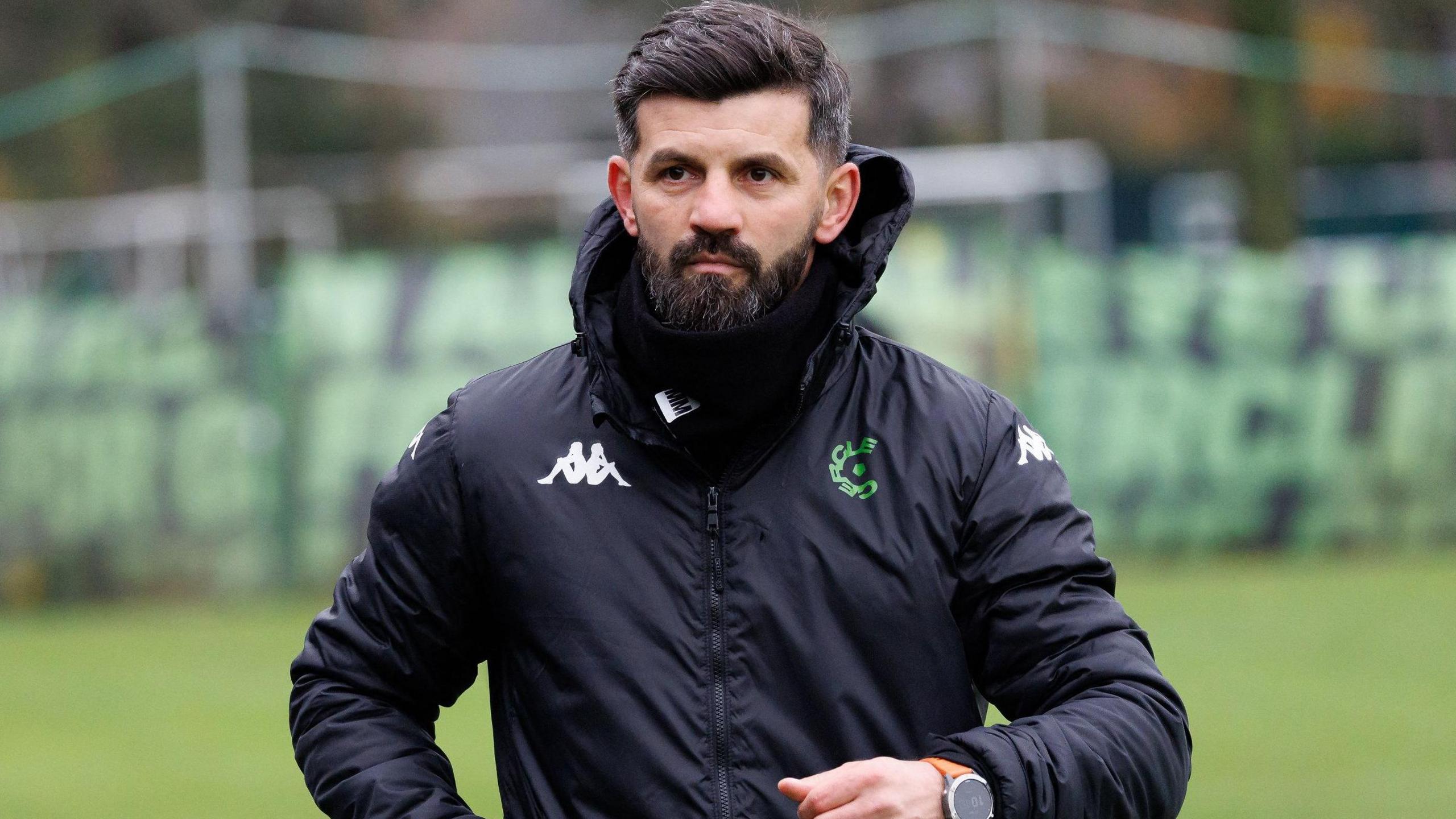Plymouth appoint Austrian Muslic as new boss

Miron Muslic is the fourth man to take permanent charge of Plymouth Argyle in 13 months
- Published
Plymouth Argyle have appointed Miron Muslic as their new head coach.
The 42-year-old Austrian succeeds Wayne Rooney at the Championship's bottom club and has signed a three-and-a-half year deal.
Muslic was most recently the manager of Belgian side Cercle Brugge from September 2022 until his sacking last month.
The Bosnian-born former forward - who played much of his career in Austria - is the first-ever foreign manager or head coach to be employed by Argyle.
"Miron had a clear vision of how he wanted to take Argyle forward and showed a depth of tactical awareness that made it clear exactly how he wanted the team to set up and play," chairman Simon Hallett told the club website
"He comes with glowing reviews from his time at Cercle Brugge where he took a team from a lowly league position to European football which is no mean feat.
"I want to welcome him to the club and look forward to seeing him have an immediate impact on the team."
Argyle's interim manager Kevin Nancekivell will be part of Muslic's backroom team, with other coaching roles to be announced at a later date.
He will be in the stands for Saturday's FA Cup third round tie at Brentford before taking charge of his first game on Tuesday night when the Pilgrims host Oxford United in the Championship.

Miron Muslic takes over a Plymouth Argyle side on a run of one win in 16 games and three points adrift at the bottom of the Championship
Muslic led Cercle Brugge to an eighth-placed finish in Belgium's top flight in his first season in charge.
Last season he improved on that as they finished fifth in the regular season before guiding them to fourth place in the end-of-season play-offs.
That saw them reach this season's Uefa Europa League qualifying rounds in which they beat Kilmarnock over two legs before being knocked out by Norwegian side Molde and dropping into the Conference League.
He was sacked at the start of last month with Cercle in the relegation play-off places following a loss at bottom-of-the-table Beerschot.
Muslic is the fourth permanent manager of Argyle in 13 months.
Steven Schumacher, who led the Pilgrims to the League One title in 2023, left the club in December of that year to take over as Stoke City boss.
He was replaced by former England youth coach Ian Foster, but his three-month tenure saw the Pilgrims drop into the relegation zone, and it was director of football Neil Dewsnip and Nancekivell who guided the side to safety on the final day of the season.
Former England skipper Rooney took over in the summer, but he could only manage four league wins in his half-season in charge which ended on New Year's Eve with the club bottom of the Championship and with the worst defensive record in the English Football League.
Muslic chosen ahead of former favourite - analysis
Brent Pilnick, BBC Sport, Plymouth.
This is a historic move from Plymouth Argyle. A club who have never appointed a non-British manager - and for the past five years have only appointed bosses from Liverpool - opt for a relatively unknown Austrian who has been managing in the Belgian top flight.
They had three final candidates, one of which was former manager Steven Schumacher.
The ex-Stoke City boss is still immensely popular in the city after leading the Pilgrims to a club-record 101-point tally when they won League One in 2023.
But owner Simon Hallett and his team are very data-driven and will have crunched the numbers - both sporting and financial - before coming to this decision.
They clearly feel Muslic is the right man for the job - and what a job he has on his hands - no wins in two months, a lack of goals and the most porous defence in the entire English Football League.
Argyle have brought in club-record signing forward Michael Baidoo and Poland left-back Tymoteusz Puchacz this month with the aim of boosting both ends of the field, but more signings will be needed.
The Championship's history is littered with relatively unknown foreign coaches coming in - some doing excellent jobs such as Daniel Farke and Slavisa Jokanovic, while others like Andre Breitenreiter and fellow Austrian Markus Schopp - who had one win in 16 games in a spell at Barnsley in 2021 - prove that it is not an exact science.